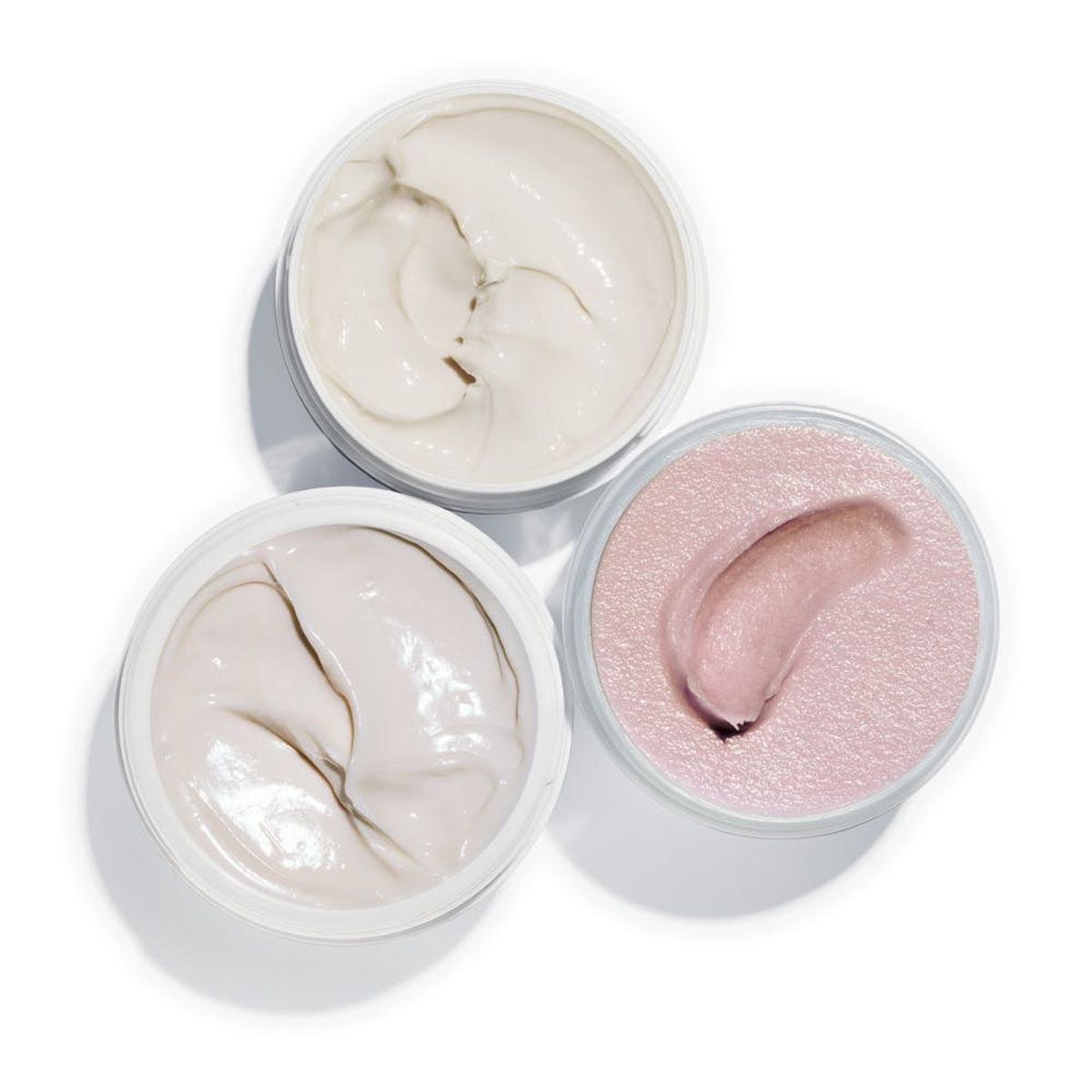Your favorite skincare product combos could actually be ruining your skin.
8 Skincare Ingredients You Should Never Mix Together

Like bringing up politics at your in-laws’ dinner table or wearing closed-toe shoes right after a pedicure, there are some things you just shouldn’t mix together. And that goes for skincare too. Certain ingredients do not play well together — one product could cancel out the other’s effectiveness, or worse, seriously irritate your skin. While a few popular power-players shouldn’t be combined, other ingredients can actually boost each other’s efficacy. Follow our rules below for a supercharged skincare routine that’ll leave your skin gorgeous and glowing rather than red and uncomfortable.
the ingredients you should never mix together
1. Retinol and Vitamin C: Combining these two all-stars won’t necessarily harm your skin, but it’s best to avoid it if possible. “Vitamin C can become inactive with small variations in a solution’s pH, like when you add retinol into the mix,” explains Michelle Henry, an NYC-based board-certified dermatologist and clinical instructor of dermatology at Weill Cornell Medical College. (Photo via Petri Oeschger/ Getty)

2. Benzoyl Peroxide (BPO) and Hydroquinone: These ingredients are not buddies on your skin’s playground. “Using BPO, a popular treatment for acne, is essentially like dropping a bomb to eradicate any p. acnes bacteria on your skin,” says Dendy Engelman, an NYC-based board-certified dermatologic surgeon. “Hydroquinone, on the other hand, is a skin lightening agent that’s used to reduce pigment in your skin, and when you toss these two very potent ‘bleaching’ compounds together, it can cause hypopigmentation.”
3. Vitamin C and AHAs: “When vitamin C and AHAs (like glycolic, lactic, or malic acid) are used in conjunction, they cancel out the effects or can be irritating on the skin,” Engelman says. “Vitamin C acts as an antioxidant and AHA chemically exfoliates, so together, these acids can destabilize each other.”
4. Retinol and Acne Treatments: With the exception of the prescription acne gel Epiduo (which is specifically formulated to co-exist with retinol), “BPO and retinoids should not be used together since they deactivate each other, rendering the retinoid ineffective,” explains Engelman.
the Ingredients You Should Mix Together

1. Vitamin C and Sunscreen: “Antioxidants, like vitamin C, work to neutralize free radical damage from sun exposure and environmental aggressors, while sunscreens work to deflect (if you’re using a physical one) or absorb (if you’re using a chemical one) damaging UV rays, offering maximum protection against cell damage,” says Engelman. Look for a serum like Isdinceutics Flavo-C Serum ($84), which allows antioxidants to penetrate deep into the skin, and a mineral sunscreen with tint, like La Roche-Posay Anthelios Tinted Mineral Sunscreen ($34), to protect from both the sun and pollutants. (Photo via Peopleimages/ Getty)
2. AHA/BHAs and Ceramides: “While AHAs and BHAs (like salicylic acid) help to remove the top layers of skin by weakening the lipids that bond them together (thus revealing healthy skin cells), ceramides help to restore the skin by holding the cells, locking in moisture, and acting as a barrier against pollution and bacteria,” says Engelman. Which means applying ceramide-rich formulas really helps hydrate and strengthen skin. To upgrade your regimen, try something like iS Clinical Tri-Active Exfoliant ($60) at night, and follow up with Elizabeth Arden Ceramide Capsules Restoring Serum ($44 for 30 capsules).
3. Retinol and Hyaluronic Acid: “Retinoids help to accelerate cell turnover by pushing younger cells to the skin’s surface, and although they’re a fantastic anti-ager, they can be irritating and induce desquamation (or skin peeling),” explains Engelman. On the other hand, “[hyaluronic acid (HA)] helps to hydrate the skin, combating both the irritation and peeling caused by retinoids.” For those struggling with acne, she recommends trying Differin Acne Treatment Gel ($11), an over-the-counter retinoid that’s gentle enough for sensitive skin. For those who prefer HA in serum form, try the Revision Hydrating Serum ($82.50), which is light, absorbs quickly, and contains a blend of natural fruit extracts to keep skin uniformly hydrated.
Are you using any products with these ingredients already? Let us know @BritandCo!
Brit + Co may at times use affiliate links to promote products sold by others, but always offers genuine editorial recommendations.
(Featured photo via PLAINVIEW/ Getty)



















